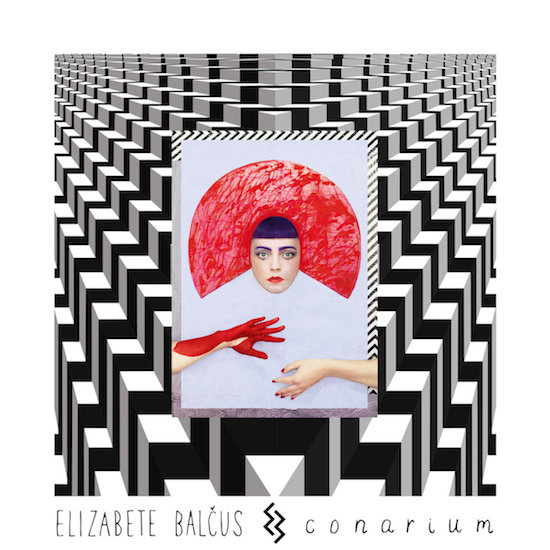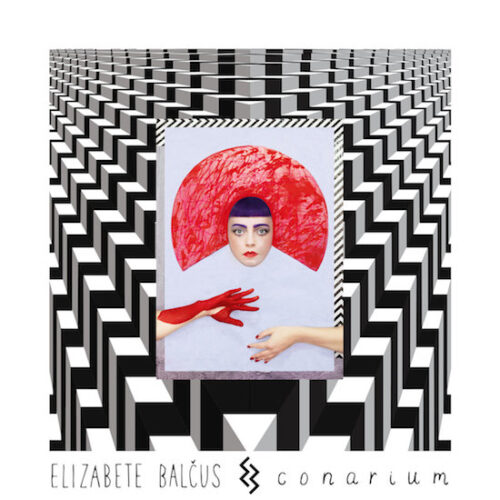I first became aware of Latvia’s Elizabete Balčus when she chucked a pineapple at me in an old railway station building in Vilnius. Of course, it was part of her act. Further, she’s not the first artist to throw a pineapple about in a gig; it made an impression nonetheless. I remember thinking, now then, here’s another millennial crazy. There are a lot of young artists doing their own wacky thing at the moment, liberated by technology to act out their musical and social fantasies but often hemmed in by their bedroom and the sapping effect of social media. With Conarium, though, Balčus made a beautiful record, often amusing, sometimes inspiring; it’s not a new release – it came out originally in 2016 – but it’s one worth covering.
Conarium is nearly an hour long but seems to float by in an instant, borne aloft by flutes and beats; it reminds me of one of those trains of Bacchus painted by Rubens or Jordaens, the riots on a cart where everyone is getting completely hammered. You could say Conarium is a ‘properly’ baroque record in structure, informed by clear arching melody lines and offset by swirling codas and beautiful snippets of harmony. It has a baroque airiness, too; it seems to exist in its own rarefied space, very gestural in manner, but somehow never really available to connect to emotionally. Like a monstrous ceiling painting – The Apotheosis of the Duke of Buckingham, say – and, in the manner of those great big beautiful frescos, it’s full of drama and space and light, with the emotions turned on full beam, lest anyone actually feel anything.
The vibe is so transcendent in places you feel you are in motion listening to it, transported in a stupor through some faerie glade and awake before you have time to register what has happened. The diffidence of Balčus’s vocal delivery adds to that – nothing feels overcooked, and the surprisingly restrained last track, ‘The Hanging Garden’, just adds to a wider sense of existential remove. Her languid vocals often act as her secret weapon, everything is kept in check, only on the paranoid ‘Jellyfish’ do we get a sort of assertive lead which lends itself to the skitty nature of the track.
Opener ‘Out’ is an elegant and stately progression which introduces the sonic elements we hear throughout the record. Flutes (we get a shitload of flutes throughout, but good flutes, flutes that give, flutes that bring an added dimension), scattery, indeterminate beats, gnomic lyrics and canny string and piano interludes are all present and correct. Elsewhere, ‘Negribas Iet Gulēt’ takes a very familiar sounding lullaby and constructs the most dazzling sugar-iced castle to dream in. Despite it being utterly flighty, a gossamer nothing, it is a beautiful piece of music.
Then we have ‘They’re Coming’, which could be the score for a Tim Burton film. Here the flute lends a deliciously flighty touch, at times sounding like that glorious trilling hook in the classic St Etienne number ‘Nothing Can Stop Us Now’ (a very similar flute part makes a reappearance later on in ‘Dusk and Recession’). It’s irrepressible music, the melody again borrowing something from mid-80s pop (Bryan Adams’ ‘Run To Me’ and Black’s ‘A Wonderful Life’) given a clippity-cloppity beat and dragged through a hedge by the players in a Carolingian Grand Masque.
An interesting and assured record then, and a clear progression from anything Balčus has done in the past few years. And certainly something that shouldn’t be left languishing unappreciated on the margins of European pop.



